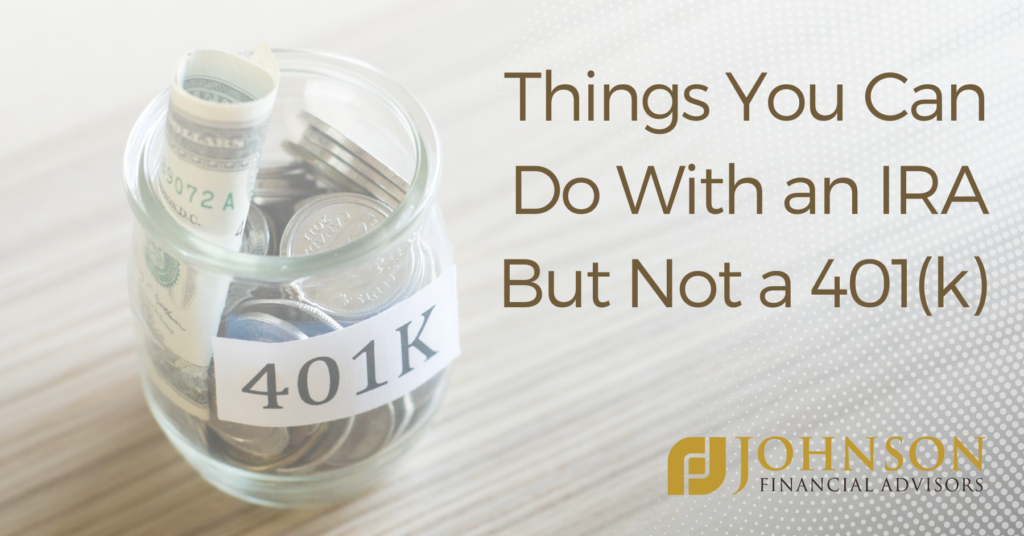
Things You Can Do With an IRA But Not a 401(k)
Combine your RMDs. Required minimum distributions (RMDs) are waived in 2020 because of COVID-19. But normally, if you have multiple 401(k) accounts when you are 72 or older* and no longer working, you’ll need to take your RMDs from each 401(k). But if you have multiple IRAs, you can combine the RMDs and take them from any single IRA account. (*or 70½ if you reached that age before Jan. 1, 2020)
Take an early distribution. While it’s best to avoid using retirement savings for other purposes, when the unexpected occurs, being able to access them can be a real gift – even if you must pay income tax and a penalty for an early withdrawal. This option is guaranteed under the law with IRAs; whether you have this same ability with your 401(k) depends on your plan’s rules.
Use funds for qualified expenses. Although early withdrawals from pretax retirement accounts generally incur a penalty, there are legal exceptions for IRAs, including using funds for higher education expenses or using up to $10,000 toward a first home purchase.
Make a qualified charitable distribution (QCD). If you are 70½ or older, you may choose to send up to $100,000 directly from your IRA account to a charity. Because the QCD is not counted as income, it may lower your tax bill more than if you take a distribution and make a separate donation. Plus, the QCD can offset part or all of your RMD. However, under the SECURE Act, IRA owners must reduce intended QCDs by any IRA contribution amounts made after age 70½.
Enjoy greater investment choices. Most 401(k) plan sponsors limit investors to a few dozen mutual funds, some of which may be accompanied by high fees and lackluster performance. In contrast, except for prohibited investments, such as life insurance or collectibles, choices are nearly limitless in an IRA.
Need help deciding whether to roll a 401(k) into an IRA or to consolidate retirement accounts? Give us a call to discuss the pros and cons.
Securities America and its representatives do not provide tax advice; coordinate with your tax advisor regarding your specific situation.
